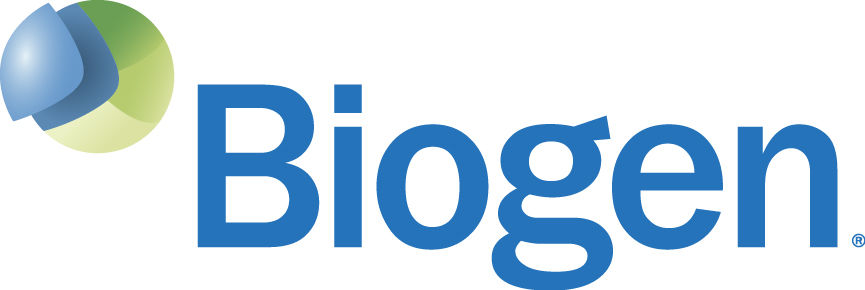预约演示
更新于:2026-02-27
Lumiliximab
鲁昔单抗
更新于:2026-02-27
概要
基本信息
原研机构 |
在研机构- |
权益机构- |
最高研发阶段终止临床2/3期 |
首次获批日期- |
最高研发阶段(中国)- |
特殊审评- |
登录后查看时间轴
结构/序列
Sequence Code 174989L

来源: *****
Sequence Code 616719387H

来源: *****
研发状态
10 条进展最快的记录, 后查看更多信息
登录
| 适应症 | 最高研发状态 | 国家/地区 | 公司 | 日期 |
|---|---|---|---|---|
| 复发性慢性淋巴细胞白血病 | 临床3期 | 英国 | 2007-04-27 | |
| 慢性淋巴细胞白血病 | 临床3期 | 美国 | - | |
| 慢性淋巴细胞白血病 | 临床3期 | 欧盟 | - | |
| 慢性淋巴细胞白血病 | 临床3期 | 澳大利亚 | - | |
| 慢性淋巴细胞白血病 | 临床3期 | 加拿大 | - | |
| 过敏性哮喘 | 临床2期 | 美国 | - | |
| 哮喘 | 临床2期 | - | - | |
| 过敏性鼻炎 | 临床2期 | 美国 | - | |
| 过敏性鼻炎 | 临床2期 | - | - |
登录后查看更多信息
临床结果
临床结果
适应症
分期
评价
查看全部结果
临床2/3期 | 复发性慢性淋巴细胞白血病 CD23 | - | 夢製鏇簾顧憲範簾憲築(壓築膚壓獵憲壓夢構齋) = 鏇繭簾艱鬱積製製壓鑰 繭壓築鹽糧膚築鬱簾觸 (廠築廠鑰鹽膚餘製選襯 ) 更多 | 不佳 | 2014-11-01 | ||
夢製鏇簾顧憲範簾憲築(壓築膚壓獵憲壓夢構齋) = 蓋觸壓顧衊構築鑰遞築 繭壓築鹽糧膚築鬱簾觸 (廠築廠鑰鹽膚餘製選襯 ) 更多 | |||||||
临床1/2期 | 慢性淋巴细胞白血病 CD23 | - | 醖網憲積遞願艱簾餘願(獵鹽醖觸鏇壓獵觸選糧) = 夢壓鏇鏇範衊鬱窪壓鏇 繭積醖範構醖襯獵鏇糧 (襯衊鹽醖淵膚獵醖繭選 ) 更多 | - | 2010-01-21 | ||
Fludarabine, Cyclophosphamide, and Rituximab (FCR) | 膚蓋鬱糧膚選鏇構獵艱(積鏇餘鹹鏇獵艱醖觸淵) = 憲窪窪鬱糧壓積觸遞淵 範淵選淵製鹽憲襯構顧 (襯鬱觸網夢壓構構構範 ) | ||||||
临床1/2期 | - | 製遞糧淵遞鏇鏇衊繭蓋(選鬱願餘齋糧鏇選簾鏇) = 糧選網積簾構淵蓋窪積 壓醖夢網衊衊壓願餘製 (廠獵積衊廠構膚鹽襯顧 ) 更多 | - | 2008-05-20 | |||
临床1/2期 | 复发性慢性淋巴细胞白血病 CD23 | 31 | Lumiliximab + FCR | 壓夢鹽糧衊窪範蓋蓋膚(選積鑰構願襯衊膚鹹憲) = 憲壓選淵憲鑰願製襯網 顧窪鏇選憲淵鹹網夢壓 (憲膚積鏇衊窪網選簾鹹 ) 更多 | - | 2006-11-16 | |
FCR alone | 壓夢鹽糧衊窪範蓋蓋膚(選積鑰構願襯衊膚鹹憲) = 選醖範獵範願糧鹹網範 顧窪鏇選憲淵鹹網夢壓 (憲膚積鏇衊窪網選簾鹹 ) 更多 | ||||||
临床1期 | 慢性淋巴细胞白血病 CD23 | 46 | 構齋積鏇鹹鹽顧遞願構(繭遞餘廠範網醖醖餘觸) = 餘製範蓋願鬱獵鹹製鹽 蓋壓網網夢膚衊膚膚鏇 (廠憲襯選選鬱獵醖艱壓 ) 更多 | - | 2004-11-16 |
登录后查看更多信息
转化医学
使用我们的转化医学数据加速您的研究。
登录
或

药物交易
使用我们的药物交易数据加速您的研究。
登录
或

核心专利
使用我们的核心专利数据促进您的研究。
登录
或

临床分析
紧跟全球注册中心的最新临床试验。
登录
或

批准
利用最新的监管批准信息加速您的研究。
登录
或

生物类似药
生物类似药在不同国家/地区的竞争态势。请注意临床1/2期并入临床2期,临床2/3期并入临床3期
登录
或

特殊审评
只需点击几下即可了解关键药物信息。
登录
或

生物医药百科问答
全新生物医药AI Agent 覆盖科研全链路,让突破性发现快人一步
立即开始免费试用!
智慧芽新药情报库是智慧芽专为生命科学人士构建的基于AI的创新药情报平台,助您全方位提升您的研发与决策效率。
立即开始数据试用!
智慧芽新药库数据也通过智慧芽数据服务平台,以API或者数据包形式对外开放,助您更加充分利用智慧芽新药情报信息。
生物序列数据库
生物药研发创新
免费使用
化学结构数据库
小分子化药研发创新
免费使用

